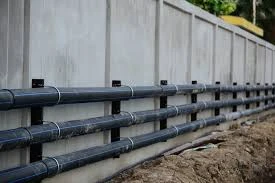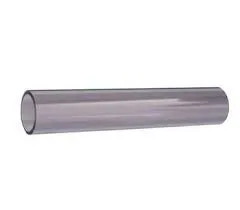Feb . 14, 2025 07:07 Back to list
hdpe irrigation pipe
High-Density Polyethylene (HDPE) irrigation pipes are revolutionizing the agricultural sector, serving as a linchpin for effective water management. As a robust solution, they meld durability, efficiency, and cost-effectiveness, appealing to farmers globally.
Trustworthy accounts from agriculture experts emphasize HDPE's ease of installation. Farmers often recount that transitioning to HDPE systems requires minimal training and technical assistance. Its lightweight nature facilitates transport and installation, even in remote areas. Coupled with accessibility to various diameters and lengths, HDPE pipes meet diverse irrigation demands, from small-scale farms to extensive agricultural operations. Within the broader scope of irrigation technology, HDPE stands as a testament to innovation. Adopting such advanced materials elevates a farm's irrigation system beyond basic functional requirements, evolving into a sophisticated resource management solution. HDPE irrigation pipes enhance efficiency not just in water management but also in reducing the overall carbon footprint associated with agricultural practices. In terms of community impact, regions that have shifted towards HDPE irrigation pipes report notable improvements in agricultural productivity. Enhanced yield due to efficient water delivery means better economic stability for farming communities. This leads to reduced poverty levels and attracts developmental investments in rural areas, further bolstering local economies. In summary, HDPE irrigation pipes exemplify an ideal blend of resilience, efficiency, and sustainability. Their adoption represents an investment in long-term agricultural success, pivoting toward a future where water management practices align with both economic and environmental aspirations. Farmers seeking reliable irrigation solutions that offer substantial returns will find HDPE pipes to be a cornerstone in achieving their operational goals. As a trusted solution in modern agriculture, HDPE irrigation pipes promise to propel farming practices into the future while addressing current challenges with practical, impactful solutions.


Trustworthy accounts from agriculture experts emphasize HDPE's ease of installation. Farmers often recount that transitioning to HDPE systems requires minimal training and technical assistance. Its lightweight nature facilitates transport and installation, even in remote areas. Coupled with accessibility to various diameters and lengths, HDPE pipes meet diverse irrigation demands, from small-scale farms to extensive agricultural operations. Within the broader scope of irrigation technology, HDPE stands as a testament to innovation. Adopting such advanced materials elevates a farm's irrigation system beyond basic functional requirements, evolving into a sophisticated resource management solution. HDPE irrigation pipes enhance efficiency not just in water management but also in reducing the overall carbon footprint associated with agricultural practices. In terms of community impact, regions that have shifted towards HDPE irrigation pipes report notable improvements in agricultural productivity. Enhanced yield due to efficient water delivery means better economic stability for farming communities. This leads to reduced poverty levels and attracts developmental investments in rural areas, further bolstering local economies. In summary, HDPE irrigation pipes exemplify an ideal blend of resilience, efficiency, and sustainability. Their adoption represents an investment in long-term agricultural success, pivoting toward a future where water management practices align with both economic and environmental aspirations. Farmers seeking reliable irrigation solutions that offer substantial returns will find HDPE pipes to be a cornerstone in achieving their operational goals. As a trusted solution in modern agriculture, HDPE irrigation pipes promise to propel farming practices into the future while addressing current challenges with practical, impactful solutions.
Share:
Next:
Latest news
-
High-Precision PVC Rigid Sheets for Vacuum Forming | AI-Optimized
NewsAug.05,2025
-
Durable PVC-M Water Supply Pipes | 60-Year Life
NewsAug.04,2025
-
Premium HDPE Water Supply Pipes: Durable & Leak-Proof
NewsAug.03,2025
-
Premium PVC-M Water Supply Pipe - Durable & Efficient
NewsAug.02,2025
-
HDPE Drainage & Irrigation Pipe - Durable, Efficient Solutions
NewsAug.01,2025
-
Premium PVC Transparent Pipe: Durable & Clear Solutions
NewsJul.31,2025

